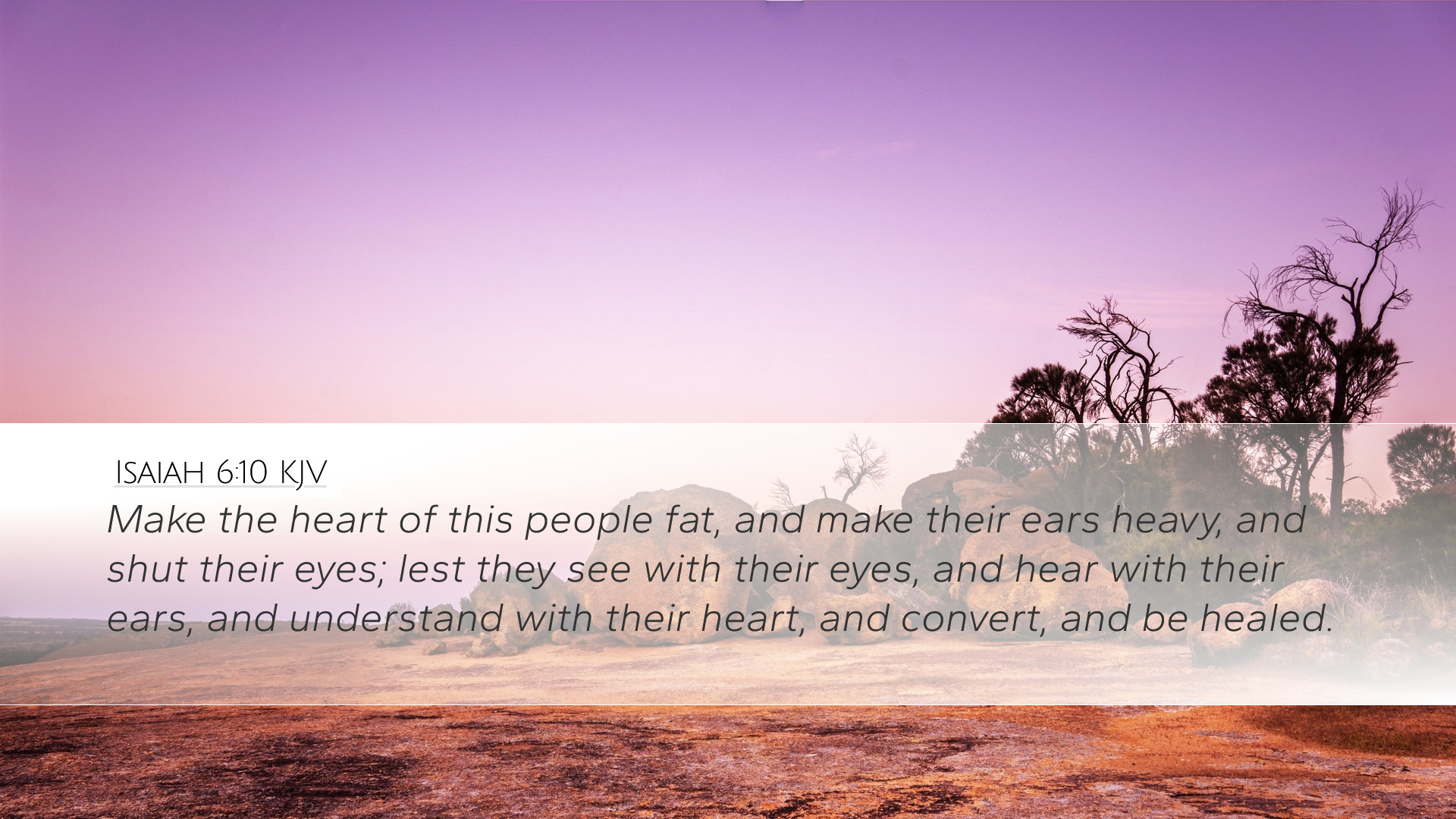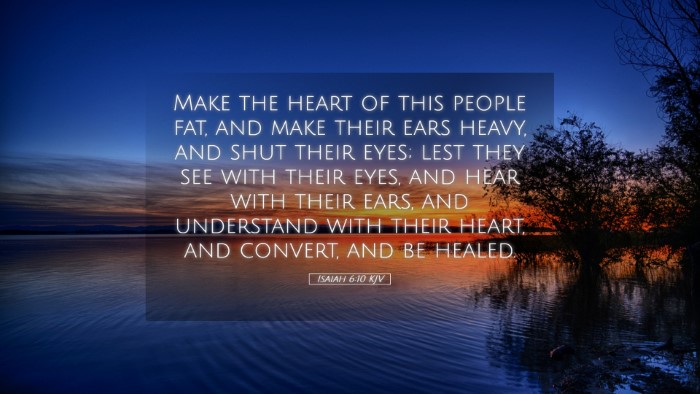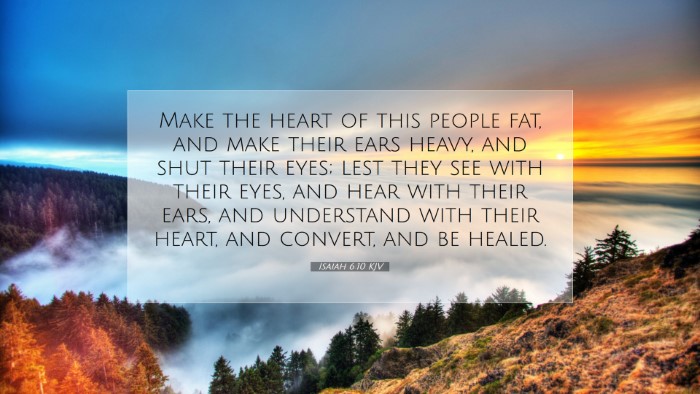Commentary on Isaiah 6:10
Isaiah 6:10 presents a profound challenge and a divine pronouncement from God. The verse states:
"Make the heart of this people fat, and make their ears heavy, and shut their eyes; lest they see with their eyes, and hear with their ears, and understand with their heart, and convert, and be healed."
Introduction
This command from God to Isaiah marks a pivotal moment in the prophetic ministry. It reflects not only the burden of the prophet but also the sovereign will of God in dealing with a stubborn Israel. Notable commentators provide rich insights into the implications of this verse, emphasizing themes of judgment, spiritual blindness, and the transformative power of understanding. Below, we summarize the theological and practical applications from esteemed public domain commentaries.
The Context of Isaiah 6
Historical Setting: The chapter begins with Isaiah's vision of the Lord in His holiness, which leads to his commission. Scholars note the contrast between God's majesty and the sinfulness of the people. As Isaiah is cleansed and called, the commission to blind the people seems paradoxical, raising questions about God’s character and intentions.
The Nature of Spiritual Blindness
Matthew Henry emphasizes: This verse illustrates a divine judgment—a hardening of the hearts of the people. Their spiritual blindness and deafness are consequences of their persistent sin and rebellion. Henry remarks that this hardened state prevents them from perceiving the truth and repenting.
Albert Barnes adds: The notion of God actively blinding people may seem harsh, but it reflects a judicial act of God. Barnes explains that God's patience has limits; when a people continually reject His messages, He may then make it impossible for them to receive truth. This is not a capricious act but a solemn result of human choices.
Theological Implications
Adam Clarke presents several important points: The idea that God would close eyes and ears to the truth raises essential questions about free will and divine sovereignty. Clarke suggests that while God's actions here are directly linked to Israel’s disobedience, they also serve a broader purpose in God's redemptive plan. He indicates that this warning serves to establish a clear line: those who reject God’s word will face severe consequences, both temporally and eternally.
The heart of the matter is the condition of the people’s hearts. Their refusal to heed the call of repentance leads to divine judgment. Clarke points out that this is not merely an act of abandonment but a necessary step in a greater narrative, leading to eventual redemption through Christ.
Spiritual Application for Believers
This passage offers profound lessons for pastors and theologians:
- The Danger of Indifference: The hardening process serves as a grim reminder of the perils associated with spiritual indifference. Therefore, pastors must actively exhort congregations to remain sensitive to the Holy Spirit.
- The Role of Prophets: Isaiah's commission highlights the weight of prophetic responsibility. It teaches modern leaders about the significance of proclaiming the truth unflinchingly, regardless of popular opinion.
- Responsibility of the Church: The church today is called to address spiritual blindness within society. It challenges congregations to be bold in proclaiming the Gospel, ensuring that they are not complicit in the apathy that leads to hardening of hearts.
Conclusion
In summary, Isaiah 6:10 encapsulates a crucial aspect of God’s interaction with humanity: His holiness demands a response. Failure to respond can lead to profound spiritual consequences. The insights from Matthew Henry, Albert Barnes, and Adam Clarke converge beautifully, urging believers to consider their own hearts and the state of the world around them.
This commentary serves as both a warning and a call to faithful living, challenging us to engage with the truths of Scripture, fostering a community that seeks understanding and healing in Christ.


